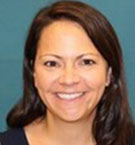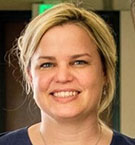PPC IDEA Lab
Contact Information
Pediatric Palliative Care Innovation, Discovery, Evaluation, and Advancement Lab (PPC IDEA Lab)
125 Nashua St., Suite 8446
Boston,
MA
02114
Email: meavery@mgh.harvard.edu
Explore This Lab

Mission and Culture
Who we are and what we do
The Pediatric Palliative Care Innovation, Discovery, Evaluation, and Advancement Lab (PPC IDEA Lab) at Massachusetts General Hospital is comprised of interprofessional investigators collectively aiming to improve the well-being of seriously ill pediatric patients and their families. We focus on identifying and measuring developmentally appropriate outcomes for patients and their families. We then systematically develop and rigorously evaluate interventions aimed at improving these outcomes.
Our research seeks to impact care throughout the illness trajectory from diagnosis, advanced illness, transitions to adulthood, end-of-life, and bereavement, and across all ages, from perinatal to young adult. Key interventions currently under development and evaluation include understanding and mitigating symptom distress in seriously ill children, goals of care and decision-making support for parents, adolescents, and young adults, and the impact of subspecialty palliative care interventions in children with cancer and other serious illnesses.
Recent Projects
PediQUEST Respond
PediQUEST — a computerized data collection system — has been adapted to better understand pain and discomfort in children with severe neurological impairment (SNI). A National Institute of Nursing Research-funded RCT is underway to evaluate the feasibility and acceptability of an intervention combining PediQUEST reports and the intervention of the palliative care team.
PediQUEST Response
PediQUEST was used to complete a multicentered trial to assess the effect of routinely providing child-reported symptoms and quality-of-life feedback to clinicians and families. The results showed that feedback promotes a child's psychological well-being. A strengthened intervention called PediQUEST Response enabled the palliative care team to respond to child distress. PediQUEST Response is currently being analyzed following a multicentered randomized controlled trial.
Goals of Care Video Project
The young adult video project is a randomized trial that examines the utility of young adults with advanced cancer and their caregivers watching a video on advanced care planning. The goal of this study is to increase effective advanced care planning and promote shared decision-making among adolescents and young adult patients (AYAs). We hope to help AYAs and their caregivers discuss goals of care together to make sure patients receive medical care consistent with their values.
We are next embarking on Video Images about Decisions for Ethical Outcomes in Pediatrics (VIDEO-PEDS), which aims to build the infrastructure for conducting a large randomized pragmatic trial of a goals of care video decision aid for families of children with advanced cancer. This work will use an approach of natural language processing (NLP).
MyPREF
This is an online survey that utilizes adaptive conjoint analysis to identify and quantify patient and caregiver preferences of treatment attributes. As a pilot study, this overall goal is to evaluate the clinical utility and usefulness of this tool in the treatment of adolescent and young adult patients with advanced cancer.
The Pediatric Serious Illness Communication Program (PediSICP)
This is a structured, multicomponent intervention to teach advance care planning (ACP) communication skills to non-palliative care clinicians to facilitate effective, longitudinal ACP and ensure care is aligned with patient and family goals and values. PediSICP includes two clinician-facing ACP guides, one for conversations with AYAs and one for conversations with parents of seriously ill children, a preparatory patient and family worksheet, and an electronic medical record template to document the resultant ACP conversations. The intervention development process and the guides were published in the Journal of Pediatrics in 2021. A pilot study to evaluate the programs feasibility and effect on important patient and family outcomes such as shared decision making, and quality of communication is currently underway.
Bereavement
This is a multi-site survey study with St. Jude examining the early grief experiences of parents of children who died from cancer. This study aims to better understand what leads to more positive outcomes such as social integration and functioning in bereaved parents, and to better identify targets for intervention for parents who demonstrate adjustment difficulties in the initial stages of bereavement.
SoLACE
This is a single-site bereavement study involving interviewing bereaved parents on their early grief experience, the types of support they received or wish they had received, and future interventions. The aim of this study is to develop a future intervention that will help parents and families before, during, and after their child’s end of life.
SHARE
The shared data and research study is a prospectively collected clinical database with patient-reported outcomes from pediatric palliative care patients and parents across multiple hospitals. The database is integrated with a hospital administrative database to explore trajectories over time of patients’ symptoms, parents' affect and distress, parental goals, and hospital costs.
Using the SHARE cohort, additional analyses aim to describe the most prevalent surgical interventions received by pediatric palliative patients with chronic conditions. These data are being used to elucidate the purposes of such surgeries in the hopes of creating a framework that can be used to assess patient and family understanding of surgical interventions as well as promote goal concordance between clinical care teams and patients’ families.
Lab Members
 Joanne Wolfe, MD, MPH – Co-PI
Joanne Wolfe, MD, MPH – Co-PI
jwolfe@mgh.harvard.edu
Physician in Chief, Mass General for Children
Chair, Department of Pediatrics
Professor of Pediatrics, Harvard Medical School
The primary focus of Joanne Wolfe’s research is using patient-reported outcomes to improve the care of children with serious illnesses and their families. She is completing a multicentered randomized controlled trial of the PediQUEST Response Intervention, an early palliative care intervention aimed at improving quality of life and symptom distress in children with advanced cancer. She is also adapting this intervention for children with neurological impairment.
 Veronica Dussel, MD, MPH – Co-PI
Veronica Dussel, MD, MPH – Co-PI
vdussel@mgh.harvard.edu
Associate Research Scientist, Department of Pediatrics, Massachusetts General Hospital
Chair, Center for Research and Implementation in Palliative Care
Institute for Clinical Effectiveness and Health Policy, Buenos Aires, Argentina
Veronica Dussel’s research includes the use of electronic patient reported outcomes as a facilitator of quality palliative care in children with cancer and understanding the provision of palliative care in Latin America and developing interventions that help increase access to these services.
 Angela M. Feraco, MD
Angela M. Feraco, MD
angela_feraco@dfci.harvard.edu
Assistant Professor, Pediatric Hematology/Oncology, Dana-Farber Cancer Institute and Boston Children’s Hospital
Angela Feraco’s primary research focus is in provider-family communication during the initial months of childhood cancer treatment. Her broader interest is in linking physician training to patient-level outcomes.
 Jennifer Snaman, MD, MS
Jennifer Snaman, MD, MS
jennifer_snaman@dfci.harvard.edu
Attending Physician, Department of Psychosocial Oncology and Palliative Care and Department of Pediatric Oncology, Dana-Farber Cancer Institute
Assistant Professor in Pediatrics, Harvard Medical School
Jennifer Snaman’s research aims to augment the voice of adolescents and young adults with advanced cancer in treatment decision-making and to improve the understanding of the early bereavement experience of parents following the death of a child from cancer.
 Amy S. Porter, MD, PhD
Amy S. Porter, MD, PhD
abporter@mgh.harvard.edu
Attending Physician, Division of Supportive and Palliative Care, Mass General for Children, Department of Pediatrics, Massachusetts General Hospital
Amy Porter’s research uses mixed methods informed by anthropology and ethnography to illuminate experiences of living with serious illness and medical complexity that remain unseen by the medical team to guide the development of experience-near patient and family support interventions. Her current project aims to understand family caregivers’ experiences of rest and recharge to inform the design of family caregiver support interventions that reimagine respite care for this population. With a decade of experience conducting qualitative research in South Africa, she is also dedicated to exploring the history and practice of pediatric palliative care in sub-Saharan Africa in the wake of HIV denialism.
 Danielle D. DeCourcey, MD, MPH
Danielle D. DeCourcey, MD, MPH
danielle.decourcey@childrens.harvard.edu
Associate Chief, Division of Medicine Critical Care, Boston Children’s Hospital
Assistant Professor in Pediatrics, Harvard Medical School
Danielle DeCourcey is a pediatric critical care physician with a clinical and research interest in primary palliative care interventions focused on improving communication and end-of-life care for children with serious illness, particularly those with medical complexity and chronic critical illness. Her current research is focused on examining outcomes of an intervention to support non-palliative care clinicians in communicating with seriously ill pediatric patients and their families to improve longitudinal advance care planning.
 Ijeoma Julie Eche-Ugwu, PhD, MPH, FNP-BC
Ijeoma Julie Eche-Ugwu, PhD, MPH, FNP-BC
Ijeomaj_eche@dfci.harvard.edu
Ijeoma Julie Eche-Ugwu’s research focuses on reducing cancer-related palliative care disparities and improving psychosocial outcomes for marginalized families of children with cancer through developing and testing culturally congruent psychosocial interventions.
 Ross W. Cleveland, MD
Ross W. Cleveland, MD
Rossw_Cleveland@dfci.harvard.edu
Ross Cleveland’s research focuses on the intersection of serious childhood illness and child maltreatment. His goal is to highlight the disparities leading to and exacerbating these situations by elevating the discussion of the complex systems involved.
 Joanne S. Chiu, MD
Joanne S. Chiu, MD
jchiu@mgh.harvard.edu
Joanne Chiu's primary research interests are improving the communication and experience in fetal counseling and how physician attitudes and patient beliefs may affect how this counseling is delivered and received.
 Elizabeth Broden, PhD, RN
Elizabeth Broden, PhD, RN
elizabeth.broden@yale.edu
National Clinician Scholar, Yale University
Elizabeth Broden’s research aims to articulate and amplify the impact of primary palliative care nursing on children and families' end-of-life experiences in the pediatric ICU.
 Prasanna Ananth, MD, MPH
Prasanna Ananth, MD, MPH
prasanna.ananth@yale.edu
Associate Professor, Section of Pediatric Hematology/Oncology, Department of Pediatrics, Yale School of Medicine
Prasanna Ananth’s research focuses on evaluating and improving advanced cancer care for children.
 Sarah McCarthy, PhD MPH
Sarah McCarthy, PhD MPH
mccarthy.sarah@mayo.edu
Clinical Psychologist, Mayo Clinic
Sarah McCarthy’s research program is broadly focused on improving the lives of children with serious medical illnesses and their families by integrating evidence-based psychological care within the medical setting.
 Maggie Mei Ki Winters, MBBS FRACP FAChPM
Maggie Mei Ki Winters, MBBS FRACP FAChPM
Paediatric Palliative Medicine Specialist, Sydney Australia
Honorary Medical Specialist, The Children's Hospital at Westmead
Maggie Mei Ki Winters’ research interests focus on enhanced communication, more timely advanced care planning, and improved quality of life when pediatric palliative care is integrated early in children with life-limiting illnesses. Her current key diagnostic group is congenital heart disease.
 Katharine Brock, MD, MS, FAAHPM
Katharine Brock, MD, MS, FAAHPM
katharine.brock@choa.org
Associate Professor of Pediatrics – Oncology & Palliative Care, Emory University
Director, Supportive Care Clinic, Aflac Cancer & Blood Disorders Center
Physician, Pediatric Advanced Care Team (PACT), Children’s Healthcare of Atlanta
Katherine Brock’s current research focuses on outpatient palliative care for children with cancer and associated outcomes as well as simulation-based medical education for enhancing palliative care self-efficacy and competence.
 Puja Umaretiya, MD, MS
Puja Umaretiya, MD, MS
puja.umaretiya@utsouthwestern.edu
Assistant Professor, Department of Pediatrics, University of Texas Southwestern Medical Center
Puja Umaretiya’s research focuses on identifying and addressing social determinants of health that drive inequities experienced by children with advanced cancer. She aims to enhance the well-being of historically marginalized children with advanced cancer and their families.
 Emily Johnston, MD
Emily Johnston, MD
ejohnston@peds.uab.edu
Assistant Professor, University of Alabama at Birmingham
Emily Johnston’s research interests are in disparities in end-of-life care, particularly the intensity of end-of-life care for oncology patients.
 Andrea Postier, PhD, MPH
Andrea Postier, PhD, MPH
andrea.postier@ucsf.edu
Professional Researcher, Pediatrics, University of California, San Francisco, School of Medicine
Andrea Postier is a researcher with expertise in pediatric pain and palliative care for children with chronic conditions and serious illness. Her primary areas of interest are 1) the parent-caregiver experience as it relates to caring for a child with palliative care needs; 2) pain and symptom assessment, documentation, and management; and 3) pediatric palliative care service delivery across care settings and points along the illness trajectory; and 4) quality improvement in the pediatric inpatient setting. In addition to research and quality improvement activities, she is actively involved with various national and international organizations and projects, including the global Education in Palliative and End of Life Care – Pediatrics (EPEC-Pediatrics) program since its inception in 2010.
 Myra Bluebond-Langner, PhD, Hon. FRCPCH
Myra Bluebond-Langner, PhD, Hon. FRCPCH
bluebond@ucl.ac.uk
Professor of Palliative Care for Children and Young People, Emeritus, UCL School of Life and Medical Sciences, UCL Great Ormond Street Institute of Child Health
Louis Dundas Centre for Children’s Palliative Care, London, England
Board of Governors Professor of Anthropology, Emerita, Rutgers University
Trained as an anthropologist, Myra Bluebond-Langner has spent her 50+ year career studying the illness experiences of seriously and terminally ill children and their families. Her current research includes analysis of video and audio-recorded neuro-oncology and palliative care consultations in the U.K. and Australia using conversation and discourse analysis, adding to her foundational approach drawn from symbolic interactionism and ethnomethodology.
 Rachel Deming, MD
Rachel Deming, MD
Rachel_Deming@dfci.harvard.edu
Rachel Deming’s research investigates the role of palliative care in the perinatal period, specifically how palliative care can help address unmet needs for chronically critically ill neonates and their families.
Program Director
 Madeline Avery, MPH
Madeline Avery, MPH
meavery@mgh.harvard.edu
Massachusetts General Hospital, Pediatric Palliative Care Research
Research Assistant
 Ariella Wagner, MS, MD Candidate at Tufts University
Ariella Wagner, MS, MD Candidate at Tufts University
awagner14@mgh.harvard.edu
Massachusetts General Hospital, Pediatric Palliative Care Research
An aspiring pediatrician, Ariella is interested in disparities in healthcare utilization and outside-of-hospital supports for children with complex medical needs.
Alumni
View Wolfe Lab Alumni – Research Assistants
Anne Reed-Weston, MD (Columbia Medical School)
Jeet Das (MD Candidate at the University of Michigan Medical School)
Rachel Holder (Clinical Psychology PhD Candidate, Virginia Commonwealth University)
Rachel Porth (MD Candidate at Tufts University Medical School)
Leah Beight (MD Candidate at Georgetown University Medical School)
Gabrielle Helton (MD Candidate at the University of Colorado Medical School)
Sarah Stevens (MD Candidate at Washington University)
Brett Nava-Coulter, MA
Alexandra Merz (MD Candidate at Washington University)
Deborah Feifer (MD Candidate at Emory University)
Erika Tsuchiyose (MD Candidate at Tufts University)

Publications
- A Pilot of a Telehealth-Hospice Transition Intervention for Children and Young Adults with Cancer.
DeGroote NP, Harris E, Lange A, Wasilewski-Masker K, Klosky JL, Wolfe J, Kavalieratos D, Brock KE.
J Pain Symptom Manage. 2024 Mar 31:S0885-3924(24)00678-X. doi: 10.1016/j.jpainsymman.2024.03.023. Online ahead of print.
PMID: 38561131 - Improving family grief outcomes: A scoping review of family-based interventions before and after the death of a child.
Høeg BL, Guldin MB, Høgh J, Volkmann JE, Wolfe J, Larsen HB, Bidstrup PE.
Palliat Med. 2024 Mar;38(3):389-395. doi: 10.1177/02692163241233958. Epub 2024 Mar 4. PMID: 38506273 Review. - Adolescents and young adults with cancer conversations following participation in an advance care planning video pilot.
Feifer D, Helton G, Wolfe J, Volandes A, Snaman JM.
Support Care Cancer. 2024 Feb 17;32(3):164. doi: 10.1007/s00520-024-08372-y.
PMID: 38367086 Clinical Trial. - Inequitable Poverty Exposures: A Subspecialty Opportunity to Address Disparities.
Karvonen KA, Umaretiya PJ, Koch VB, Flamand Y, Aziz-Bose R, Ilcisin L, Valenzuela A, Cole PD, Gennarini LM, Kahn JM, Kelly KM, Tran TH, Michon B, Welch JJG, Wolfe J, Silverman LB, Rosenberg AR, Bona K.
Hosp Pediatr. 2024 Feb 1;14(2):e104-e106. doi: 10.1542/hpeds.2023-007482.
PMID: 38239110 No abstract available. - Economic Hardship at the End of Life for Families of Children With Complex Chronic Conditions.
Avery M, Wolfe J, DeCourcey DD.
J Pain Symptom Manage. 2024 Apr;67(4):e313-e319. doi: 10.1016/j.jpainsymman.2023.12.014. Epub 2023 Dec 25.
PMID: 38151216
Contact the PPC IDEA Lab
The Pediatric Palliative Care Innovation, Discovery, Evaluation, and Advancement Lab (PPC IDEA Lab) aims to improve wellbeing for seriously ill pediatric patients and their families.

